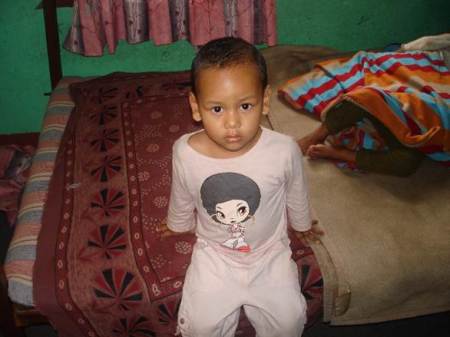Report: US State Dept Is Blocking Adoptions From Nepal for No Legitimate Reason

The U.S. State Department denied abandoned children opportunities to be adopted by American families citing suspicion of fraud even though no evidence of fraud was found, according to a six-month investigation conducted by Both Ends Burning.
The investigation, detailed in a 54-page report published Tuesday, looked at the circumstances and consequences of the U.S. government's decision to halt all adoptions from Nepal in August 2010. According to the report, the U.S. State Department halted the adoptions out of supposed fears that fraudulent adoptions, or child trafficking, were taking place, even though numerous investigations found no evidence of such.
The Both Ends Burning investigation included thousands of documents, including many obtained through Freedom of Information Act requests, and interviews with 45 American families who were affected by the suspension of adoptions from Nepal.
On Wednesday, Both Ends Burning sent a letter to Secretary of State John Kerry asking him to re-open adoptions from Nepal, as well as investigate and hold accountable those who were responsible for the tragedy.

"After a six-month investigation," the letter states, "we have come to the conclusion that the U.S. Government acted inappropriately in its decision to suspend adoptions from Nepal, created a campaign of misinformation to justify its decision, shielded the truth of the situation from the public and Congress, and inflicted unnecessary harm on the children and families whose cases were in-process at the time of the suspension. Most tragically, we believe hundreds, if not thousands, of Nepalese orphans have wrongly been denied their right to a family as a result of the U.S. Government's suspension, which is still in effect."
When adoptions were shut down in 2010, hundreds of American families had already submitted dossiers to adopt from Nepal at the time. Of those, only 62 so-called "pipeline cases," adoptions that were the furthest along in the process, were allowed to move forward. Fifty-five of those 62 cases were issued Requests for Evidence (RFEs), which required the adoptive families to provide additional information regarding how the child became an orphan. There was no evidence of fraud documented in the RFEs.
According to a joint statement from the State Department and Department of Homeland Security, adoptions were halted because documents from the Nepal government proved unreliable. In addition to the "unreliable documents" claim, the RFEs claimed there were "serious irregularities" regarding the police records, the orphanage and/or the community where the child was abandoned.
The Both Ends Burning investigation found, however, that the supposed "serious irregularities" were neither serious nor irregular.
With regard to the police reports, for instance, the State Department appeared to expect the same thoroughness one would find in a U.S. police department. In Nepal, however, police stations consist of lean-to sheds with a desk and a cot. Patrol records consist of "handwritten documents" "bundled together with string and place in a space for storage," which are kept for a couple of months.
Those pipeline families each paid over $25,000 for the additional investigations that State Department required. Of those additional investigations, none uncovered evidence of fraud or that the child they were adopting was not an orphan. The children spent, on average, and additional 201 days in institutions while those investigations were conducted.
"American families felt that they had to fight their own government to protect their adopted children, at great person expense and extraordinary emotional cost," the report stated.
The report also provides several examples of State Department officials providing false and misleading information in order to justify closing adoptions from Nepal.
In an email to congressional staffers, for instance, a State Department official sent links to three videos about sex trafficking in Nepal to justify the closure of adoptions from Nepal.
Sex trafficking is a serious problem in Nepal, but it is unrelated to the accusations of fraud in intercountry adoptions. Children who are stolen by human traffickers are ages nine and up. The children who were being adopted were babies and toddlers.
State Department officials were also condescending toward adoptive families and callous toward the orphans they were trying to adopt.
One official encouraged families who had already adopted and were waiting to bring them home to abandon their children, saying, "just pack up and go home and forget about it."
"I think [Nepalese children] are cute too, but I can no longer stand by and let children be adopted in a corrupt program," he added.
When asked about six families who were stuck in Nepal with their adopted children because of the new policy, the Ambassador said, "I have to be honest with you, six families is not a big deal."
Though the report focuses on Nepal, similar situations have occurred in other countries.
The Christian Post first began investigating the problems adoptive families were having with the State Department in 2012 when a similar situation occurred with the U.S. Embassy in Ethiopia. CP interviewed three families that told similar stories as those detailed in the report about Nepal. These families discovered several instances, in their own cases and through speaking to other adoptive families, where State Department officials were falsifying information, badgering witnesses and tampering with evidence in order to justify their attempts to prevent the adoption from moving forward.
Sen. Mary Landrieu (D-La.) has introduced legislation, Children in Families First (CHIFF), which would address some of the intercountry adoption problems found in the State Department.






















